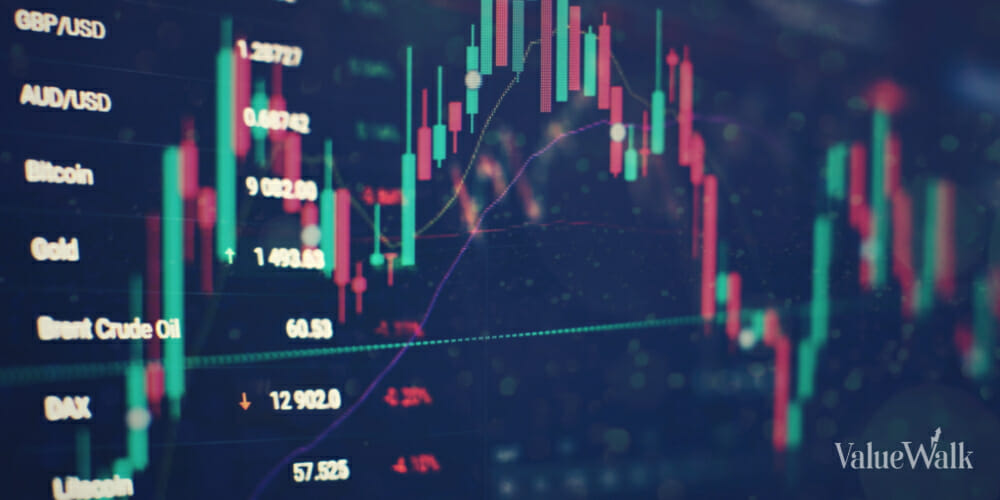Bitcoin and Ethereum started the year strong, long before the banking crisis—and amid the fallout from FTX, DCG, Silvergate, Signature, and Silicon Valley Bank. And then Credit Suisse collapsed.
This rapid succession of crises could have led to the collapse of the crypto index, including Bitcoin. Prices could have fallen much further than they have already. They did not. Bitcoin has seemingly established itself in the public consciousness, and crypto is working to do the same.
Q4 2022 hedge fund letters, conferences and more
Bitcoin, especially, has seemingly divorced from the stock market, which has long been a central criticism of it as a reserve asset. Furthermore, reasonable people argued that Bitcoin had never been tested in a higher interest rate environment.
Bitcoin was released after all in response to the announcement of a Bank of England quantitative easing program. (Nakamoto included in Bitcoin’s code the Times of London headline, “Chancellor Alistair Darling on brink of second bailout for banks”).
The second reason is that the cryptocurrency industry has suffered historic bankruptcies and illiquidity in less than a year.
Certain analysts expected the crypto market to collapse. Negative headlines persisted and still do. The crypto market has taken a brutal punch over the past year.
FTX, BlockFI, Luna, Voyager, Celsius, Genesis debacles, and then the collapse of each of the U.S. industry’s banks—Silvergate, Silicon Valley Bank, Signature Bank.
The Genesis meltdown was still very fresh on the minds of those in the industry, when the industry’s leading banks in the U.S. collapsed.
Crypto Markets Often Behave Unexpectedly
As we move deeper into the current crisis, more crypto players—household brands even—could meltdown. How the markets react is anyone’s guess. Many aspects of the current crypto markets simply don’t make sense.
For instance, FTX’s native token, FTT, remains listed on numerous exchanges, and has recorded considerable gains in 2023 despite FTX’s collapse. It surged more than 120% to start the year. Only six exchanges allowed the thin-volume FTT to trade, including Binance, Huobi, Coinex, Kucoin, and Poloniex. Nonetheless, it trades.
Admittedly, it could still trade for several reasons. New FTX CEO John J. Ray III revealed that FTX could be revived. “There are stakeholders we’re working with who’ve identified what they see is a viable business,” Ray said.
Some may be purchasing the tokens ahead of the coming announcement that FTX will be resurrected from the ashes, while others are making a meme coin play. There may still be other explanations at work, too. FTX issued tokens so traders on its exchange could earn discounts on fees, similar to Binance’s BNB token.
FTT is not the only token to continue trading after the overarching project collapsed. For instance, Terra Classic (LUNC), the old chain of the now-collapsed Terra (LUNA) ecosystem, has enjoyed price break outs in 2023, too.
Adding to the peculiar price action, Solana enjoyed gains despite public connections to FTX (FTX US built an NFT exchange on the blockchain) and the fact that a large portion of Solana’s treasury was stuck on FTX. Sam Bankman-Fried maintained FTX.US was not exposed to the same risk of the Bahamas entity.
All this merely to say: predicting crypto market action is sometimes very difficult. There is no reliable way to predict what’s going to happen next.
Without money being printed, and the crypto industry in such a precarious state, certain analysts predicted Bitcoin could fall to anywhere between $9,000-$13,000—despite being up approximately 42 percent since the start of January.
Regardless, Bitcoin remains off its all-time high of $68,789.63 in November of 2021. The trend overall has been down. If prices are to be believed, this current crisis could lead the world into Bitcoin and crypto.
The Market Is Rational
In economics, everything happens for a reason, even when to observers things seem totally irrational. The current market action seems random simply because not all of the data is available to the public amid rapid changes.
Austrian economist Ludwig von Mises uses the term "irrational" in economics to describe facts or situations that lie beyond reason: "The ultimate given may be called an irrational fact." He argued that markets are always rational, and that there’s always some reason for their behavior.
Mises adds: “However one twists things, one will never succeed in formulating the notion of 'irrational' action whose 'irrationality' is not founded upon an arbitrary judgment of value.” In short, there are reasons why the crypto markets are behaving so counterintuitively at present, we just don’t know them.
As banks collapse, we see the world - corporate and otherwise - choose Bitcoin. It’s not a coincidence. And crypto will benefit.






